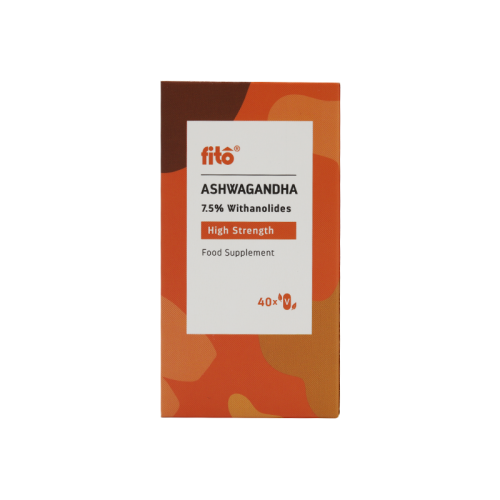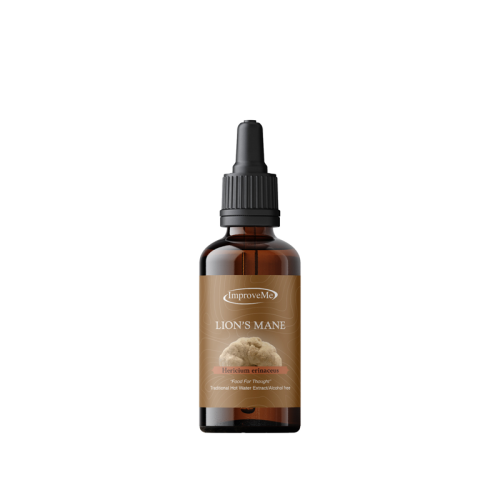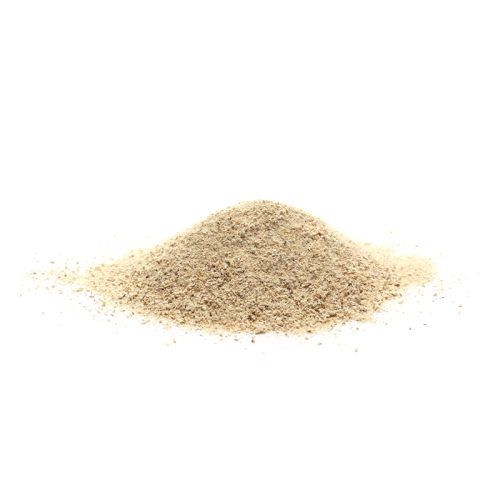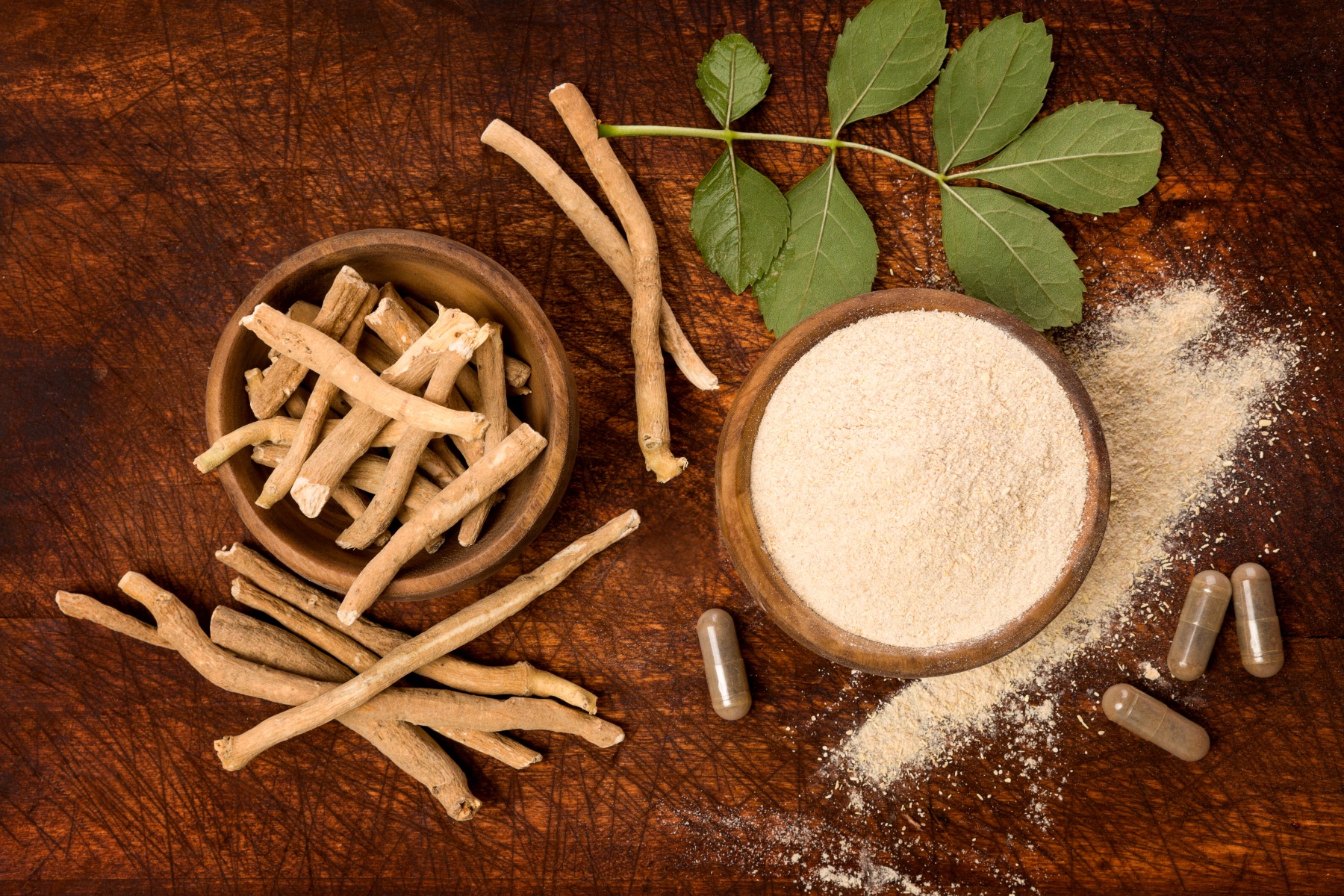

Photo Credit: "© [Eskymaks] / Adobe Stock
There are so many herbal extracts, supplements and powders that it’s challenging to decide which is best. You’ve read that both ashwagandha and Lion’s mane are great for you, but which one should you choose? What if you miss out on incredible benefits because you’re taking the wrong one?
In this blog post, we’re sharing the research behind ashwagandha and Lion’s mane so you can decide which herbal supplement is best for you.
What is ashwagandha?


Photo Credit: "© [boryanam] / Adobe Stock
Ashwagandha is a herb that has been used for centuries to treat ailments and enhance beauty. It mainly grows in the Middle East and is also called Indian Ginseng or Indian Winter Cherry.
You can crush ashwagandha root to create a delicate, pale powder with an earthy scent. The herb comes in a supplement such as ashwagandha gummies, ashwagandha tablets and ashwagandha powder.
Benefits of ashwagandha
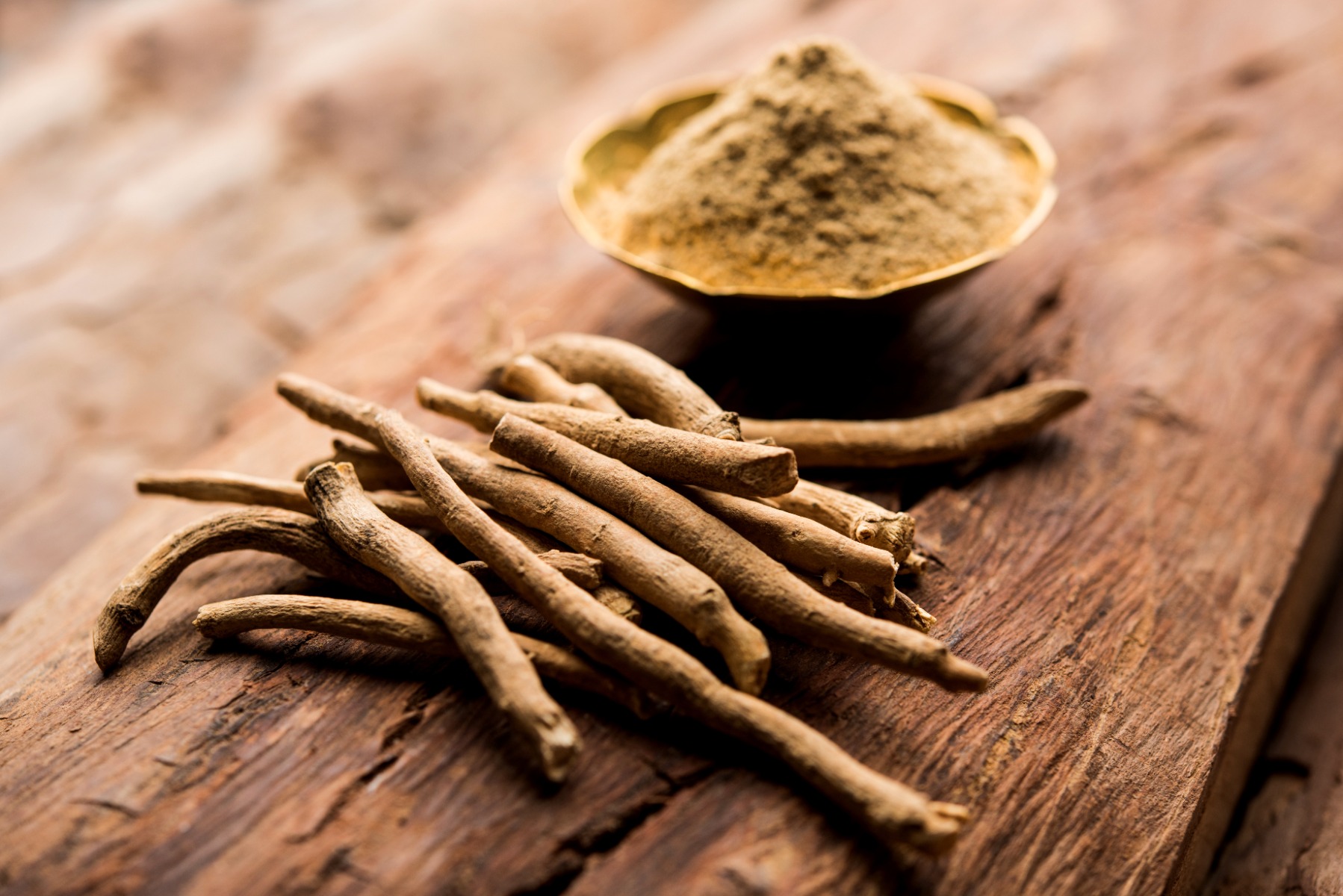

Photo Credit: "© [Arundhati] / Adobe Stock
Ashwagandha is traditionally used in Ayurvedic medicine - an ancient practice that holistically treats the mind, body, and soul. The root has a multitude of impressive benefits for nurturing health, well-being, and beauty.
Ashwagandha for stress and anxiety


Photo Credit: "© [Martina] / Adobe Stock
A 2012 study gave participants a high concentration of ashwagandha root extract in a group with chronic stress. They took one ashwagandha extract capsule twice a day for 60 days, and the rest of the participants were given a placebo capsule.
After 2 months, the cortisol levels (also known as your stress hormone) significantly dropped in those taking ashwagandha - great news for anyone struggling with stress and anxiety.
A later 2021 study gave a group of healthy adults with stress ashwagandha root and leaf extract. After just 30 days, their cortisol levels dropped, and they reported a significant reduction in stress on self-assessment reports.
Ashwagandha for sleep


Photo Credit: "© [volha_r] / Adobe Stock
A 2020 sleep study provided participants with 120 mg of ashwagandha extract for 6 weeks. Those taking the extract reported a 72% increase in sleep quality. This included total sleep time, the amount of time spent asleep while in bed, and the time it took to fall asleep.
In 2021, another study on sleep and ashwagandha was conducted. Researchers found a slight rise in better sleep in some participants. However, significant sleep improvements were observed in participants with insomnia.
Ashwagandha for hair loss


Photo Credit: "© [Galina Zhigalova] / Adobe Stock
Ashwaghanda has long been used as a remedy for healthy hair growth, and a 2023 study put it to the test. 61 participants with mild to moderate hair loss were given topical ashwagandha serum or a placebo serum. Findings showed decreased hair loss and increased hair density and growth for those taking ashwagandha.
Best ashwagandha supplement
Our Organic Ashwagandha Powder is finely milled to a beautifully soft consistency for optimal results. Vegan-friendly and high in fibre, you can add it to shakes and smoothies or even make it into a hair mask.
Read more: How To Use Ashwagandha Powder And Capsules.
What is Lion’s mane?
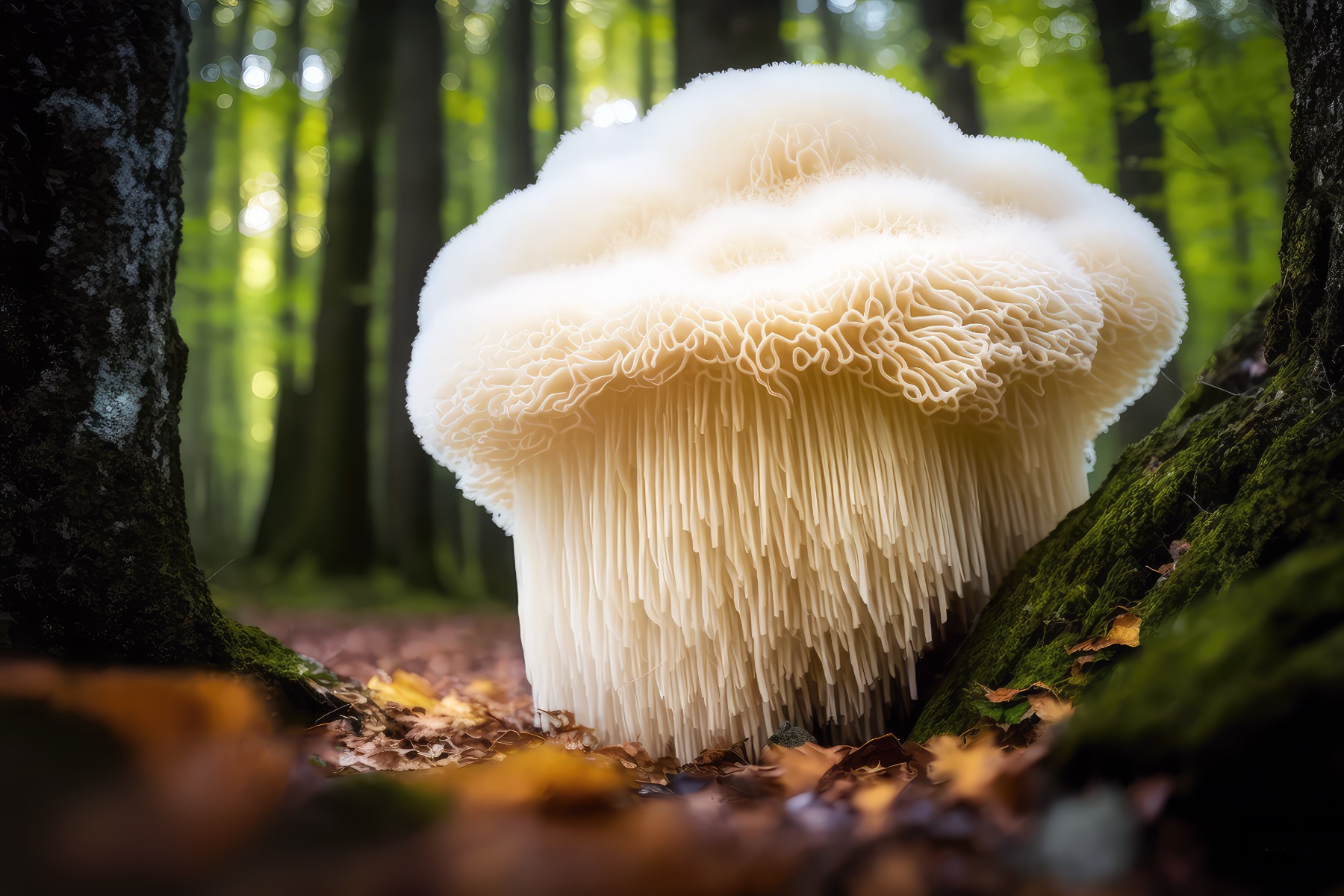

Photo Credit: "© [Dmytro Tykhokhod] / Adobe Stock
Lion's mane mushroom, also known as Hericium erinaceus, is a white mushroom that grows in woodland. Its unique shape looks like a beard or mane. Although it grows natively in many countries, you must not pick it as it’s endangered. Any Lion’s mane products you can buy are made with ethically and sustainably sourced Lion’s mane.
Benefits of Lion’s mane
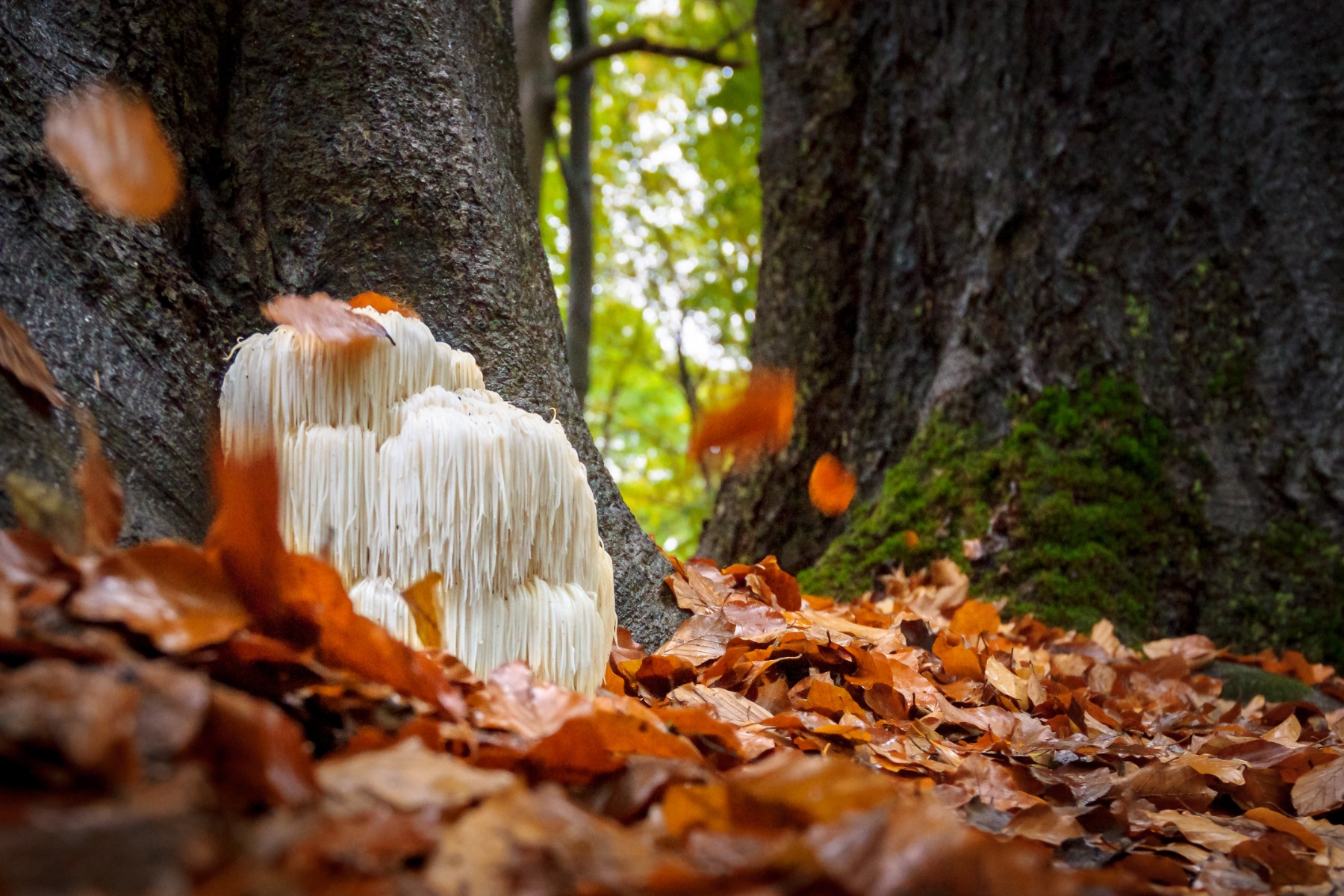

Photo Credit: "© [fotografiecor] / Adobe Stock
Lion’s mane has grown in popularity for its health and wellness benefits. But what exactly are the advantages of taking Lion’s mane mushroom?
Lion’s mane for focus


Photo Credit: "© [GalakticDreamer] / Adobe Stock
Lion’s mane has long been identified for its impressive properties for mental clarity, memory enhancement and focus. This is thought to be the case because the mushroom encourages nerve growth factor (NGF), which improves brain function.
A 2023 study gave healthy adults a Lion’s mane supplement for 28 days and found they could complete a cognitive function test quicker than the placebo group. An earlier 2018 study found that the mushroom may even be beneficial for mental clarity in those with Alzheimer's disease, Parkinson’s disease and depression.
Read more: Does Lion's Mane help with brain fog?
Lion’s mane for stress and depression


Photo Credit: "© [fizkes] / Adobe Stock
Stress and depression are intimately linked to inflammation within the body, which can cause low mood and irritability. A 2020 article highlights a study showing that Lion’s mane supplement decreases inflammation and can reduce depressive symptoms.
Lion’s mane for sleep


Photo Credit: "© [DavidPrado] / Adobe Stock
Lion’s mane isn’t a sedative. In fact, it’s a stimulant, which means it helps with alertness and mental clarity. However, taking it consistently in the morning or early afternoons could improve sleep quality.
A 2019 study discovered that Lion's mane extract helped people with sleep disorders after an 8-week period. A 2016 study showed that it could improve circadian rhythm, also known as the sleep-wake cycle, for better sleep.
Best Lion’s mane supplement
- Organic Lion's Mane Powder - This premium-quality powder is abundant in vitamins and minerals, such as thiamin, niacin, potassium, and zinc.
- Improve Me Lions Mane Mushroom Extract - Enjoy this traditionally prepared Lion’s mane extract by adding 20 drops to a cold glass of water three times a day.
Should you take Ashwaghanda or Lion’s Mane?


Photo Credit: "© [Andrii Zastrozhnov] / Adobe Stock
The ultimate question; ‘Should you take ashwagandha or Lion’s mane?’ It depends. Both have great benefits for sleep, although it’s vital that you take Lion’s mane in the morning. So, it won’t work as an evening herbal tea, whereas ashwagandha can be taken any time of the day for sleep quality.
Ashwagandha is an excellent choice if you want to focus on anxiety and hair health. But if you’re after something that lifts your mood and helps with mental clarity, Lion’s mane is more suitable.
Can I take Ashwagandha and Lion’s Mane at the same time?


Photo Credit: "© [pikselstock] / Adobe Stock
Absolutely! If you simply can’t decide, you can take ashwagandha and Lion’s mane at the same time. However, always take the recommended doses and stop if you experience any adverse side effects. If you’re on medication, check with your doctor first, as herbal remedies can interfere with certain medications.
Stimulate your mind, nourish your body and boost sleep with Grape Tree


Photo Credit: "© [PheelingsMedia] / Adobe Stock
Ashwagandha and Lion’s mane are excellent options to clear brain fog, stimulate the mind, enhance beauty, and improve sleep. Take either one (or both) consistently to reach your health and wellness goals. Try herbal supplements today with Grape Tree.
